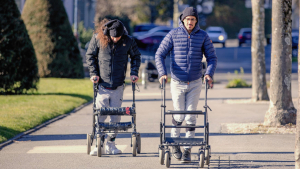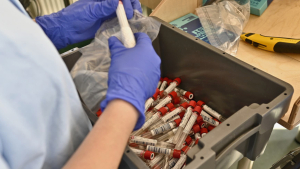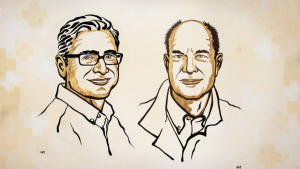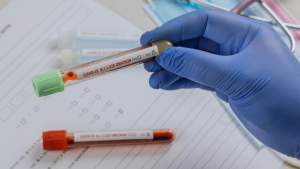The gonadotropine releasing hormone (GNRH) could promote spatial and logical thinking in people with a Down syndrome (trisomy 21) and improve their attention span. French scientists led by Maria Manfredi-Lazano from the Université de Lille report after a series of cell tests, experiments on mice and a pilot study.
In a trisomy 21, chromosome 21 is present in three instead of two versions. In addition to losses in the cognitive performance level, sufferers tend to have a worse sense of smell and men in particular are more likely to be infertile. This makes Down syndrome similar to Kallmann syndrome, which affects people with a congenital deficiency of GnRH. The hormone is formed in the hypothalamus, and also acts on neurons in the hippocampus, as well as in the cerebral cortex.
The new experiments now show that the commonality of both syndrome is no coincidence: Even with mice with trisomy 21, the researchers found a gnrh deficiency. The production of the hormone is regulated by so -called micrornas, some of which are encoded on the chromosome 21 - and thereby may be disturbed in humans and animals with a trisomy 21. Follow-up attempts confirm the suspicion that GNRH influences higher brain functions: When the scientists blocked the GnRH distributing neurons in healthy mice, the rodents performed worse in odor and intelligence tests. If, on the other hand, they planted test animals with a trisomy 21 a pump under the skin that distributed the hormone, they improved in such exercises.
The team repeated the same thing in seven people with Down syndrome: the men aged 20 to 50 were given a hormone dose every two hours for six months. After the end of the experimental period, the spatial and logical thinking as well as the attention span improved in six subjects, among other things. On MRI scans, the experts also saw that different brain regions worked more closely together after the therapy. However, the down syndrome expert Johannes Levin warns against reading too much into these data. "The results in humans are not meaningful," says the neurologist from the Ludwig Maximilians University of Munich. It is also possible that the subjects would have improved simply by practicing repeatedly and not by the hormones.



















